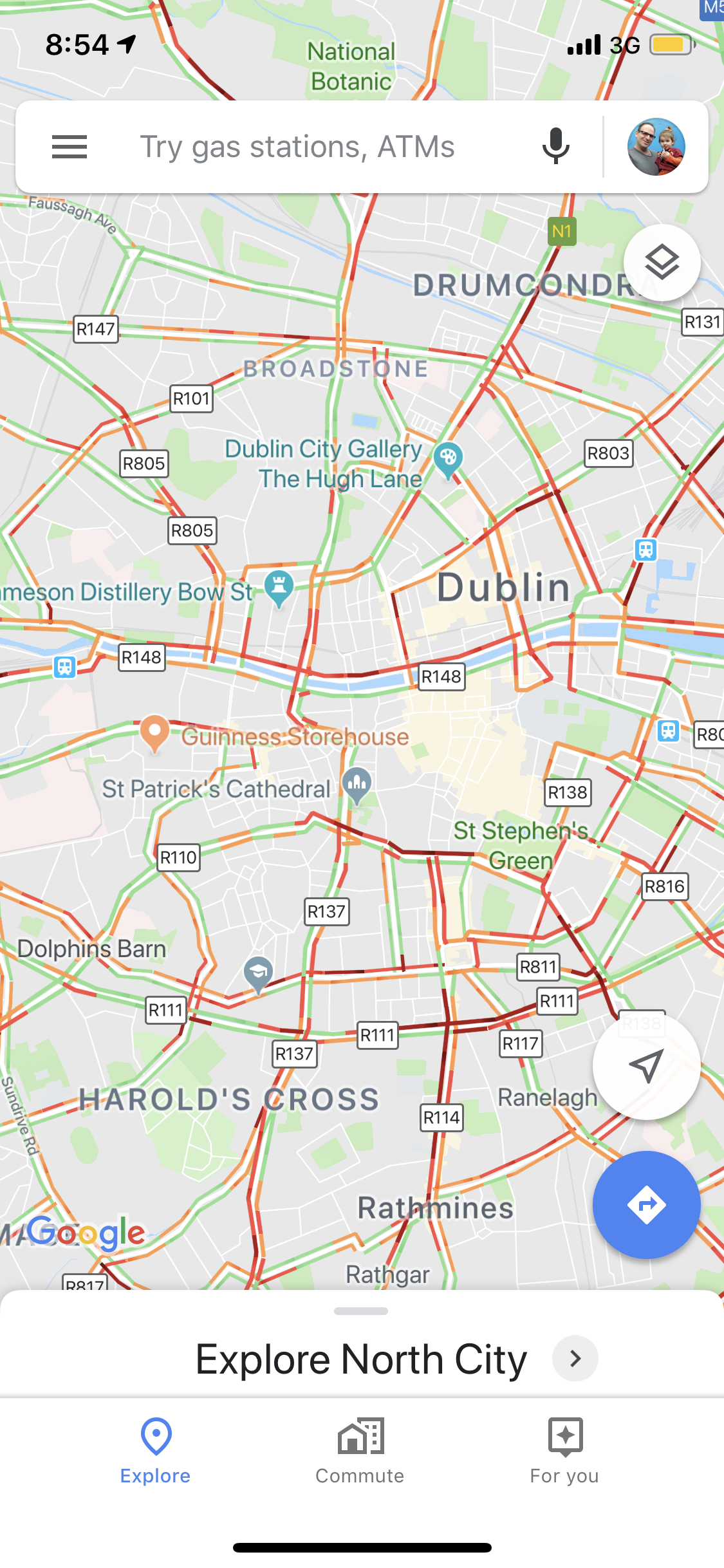Ireland and immigration - 5 minutes read
 Ireland and immigration – Philip Greenspun’s Weblog
Ireland and immigration – Philip Greenspun’s WeblogThe same question of “How do you run a welfare state with open borders?” that Milton Friedman answered with “You can’t” remains a live one in Ireland: “The Irish are losing control of Ireland once again?” is a video that an Irish friend sent me. Gemma O’Doherty, towards the end, asks what the point was of fighting the British colonizers if Ireland ultimately will be primarily occupied by non-Irish. She also points out that one third of “social housing” in Ireland is currently occupied by non-Irish. (Not sure how this can be true since, as in America, there is a long waiting list for a free house (yet folks say that free housing is a basic human right! But if it is actually a right, why is there a waiting list? If it is not a right, why do some people get a free house?)).
Ireland is far more hostile to immigrants and asylum-seekers than the U.S. Voters eliminated birthright citizenship in 2004 with a constitutional amendment. Asylum-seekers are dumped into cramped apartments, forbidden to work, and forgotten about (except by Amnesty International, which criticizes Ireland for this). The Irish with whom I spoke thought this was brutal, but effective. “Nobody is coming here to claim asylum anymore.”
During a May/June trip to Ireland, employers and developers of rental property were the most positive regarding the merits of immigration, praising the work ethic of Eastern Europeans, for example, and noting which neighborhoods in Dublin were now primarily occupied by (rent-paying) Pakistanis.
Folks who were not able to make money as a result of immigration and population growth were less sanguine. They missed the cohesion of a society in which they could find common ground for a conversation with anyone anywhere in the country. A retired police officer sounded unhappy that pedestrian streets now had to be protected from vehicular mass murder, a requirement that he attributed to the decision to allow Muslims to emigrate to Ireland.
The places in Ireland where an immigrant might settle, i.e., the cities with jobs, are jam-packed already. Traffic in Dublin and on the surrounding highways slows to a crawl in mid-afternoon. Commuter trains are standing-room-only during weekday morning and evenings. There is no realistic Chinese-style plan to add a subway system. Here’s the situation close to 9:00 am on a weekday, when people should already be at work:
Housing is not affordable for median-income earners (see “Dublin’s Housing Crisis Reaches a Boiling Point”: “The city’s average rent as of March was up to €1,875 ($2,176) a month. This is a large amount for anyone on the Irish average monthly wage of €3,181 ($3,692) and completely impossible for anyone paid anything close to the minimum hourly wage of €9.25 ($10.74).”) As in the U.S., the government engages in every possible scheme to fight the result of Econ 101 supply and demand curves. Developers of new buildings have to give apartments to central planners for them to allocate. Housing bureaucrats conceive grand plans for “social housing,” never imagining that demand for guaranteed free housing could outstrip supply (as in the U.S., the best way to get hold of a “social housing” unit is to have a child and refrain from working).
It is unclear what it would mean to apply a fashionable American politician’s open borders policy to Ireland. The country is home to roughly 5 million people. If 1 out of every 1,000 people currently living somewhere else decided that it would be nice to move to Ireland, that would be 7.6 million immigrants (from a baseline of 7.6 billion) and the country would no longer be “Irish”.
The debate is pretty much the same as in the U.S., but with all of the numbers scaled down. People who want to exclude 98 percent of would-be migrants claim the moral high ground by contrast with those who want to exclude 99 percent. Nobody who expresses love and concern for migrants actually wants to allow everyone in, much less shelter any of them in his or her own home. The country’s welfare state offers citizens the ability to refrain from work for an entire lifetime and, indeed, for multiple generations. People don’t want immigrants to come in and use the system as designed, but they have signed high-toned international agreements promising not to discriminate when ladling out the welfare.
Source: Greenspun.com
Powered by NewsAPI.org
Keywords:
Ireland • Philip Greenspun • Blog • Welfare state • Open border • Milton Friedman • Ireland • Ireland • Ireland • Ireland • Gemma O'Doherty • Ireland • Ireland • Public housing • Ireland • Ireland • Pub • Human rights • Pub • Ireland • Immigration • Refugee • Jus soli • United States Constitution • Refugee • Amnesty International • Ireland • Ireland • Refugee • Ireland • Employment • Renting • Immigration • Dublin • British Pakistanis • Immigration • Population growth • Society • Common land • Mass murder • Muslim • Ireland • Ireland • Immigration • Dublin • Chinese people • Workweek and weekend • Dublin • United States housing bubble • Boiling point • Ireland • EU three • Supply and demand • Urban planning • Public housing • Public housing • Ireland • Nice • Ireland • Irish people • Home • Welfare state • Citizenship • Employment • Person • Immigration •